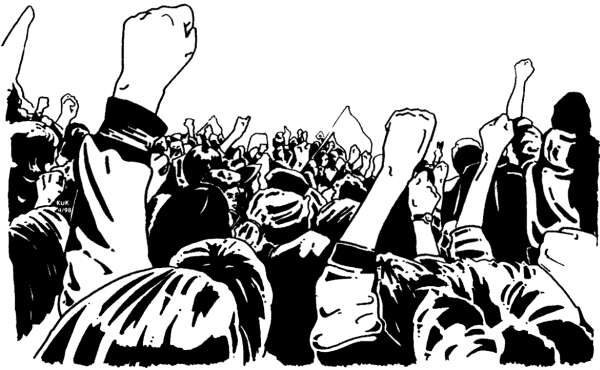With the relatively recent invention of the activist as a special category, non-activism becomes the implied norm. Non-activists—i.e., normal people—are excused from having to wrestle with the content of pertinent political issues and what remedial collective action might be taken, as activism is treated as a distinct realm unto itself—an elective activity in some ways equivalent to football, Burning Man, or World of Warcraft. Its political impotency is a general unstated assumption, and so its members are seen as value-expressive rather than political-strategic. Too often activists themselves feed this perception.

An example that epitomizes the tendency is the bumper sticker slogan “I’M ALREADY AGAINST THE NEXT WAR.” Hardly a political intervention, this sad message proudly proclaims resignation to a future in which there are inevitably more wars, while the individual dissenter can celebrate their moral commitment to be there protesting tomorrow’s wars as fervently and impotently as they protest today’s.
My point is bigger than this one bumper sticker. Its message epitomizes the problem of settling for—even celebrating—a resigned self-expressive dissent. One of the biggest constraints any challenger movement has to overcome is widespread resignation; the belief that meaningful change is simply not possible, that the forces we are up against are far too powerful. To overcome popular resignation in our particular cultural context—I’m talking about the United States, especially since the 1970s—we have to recognize and strategize about negative stereotypes about “activism” itself; especially that “activists” are often seen as the righteous few crying out in the wilderness and, whether you love them or hate them, you’re not going to bet the farm on their victory. Unless they can demonstrate that they have enough savvy to navigate the severe constraints before them; that they have a fighting chance of success.


 This Monday during Cihan Tuğal’s
This Monday during Cihan Tuğal’s